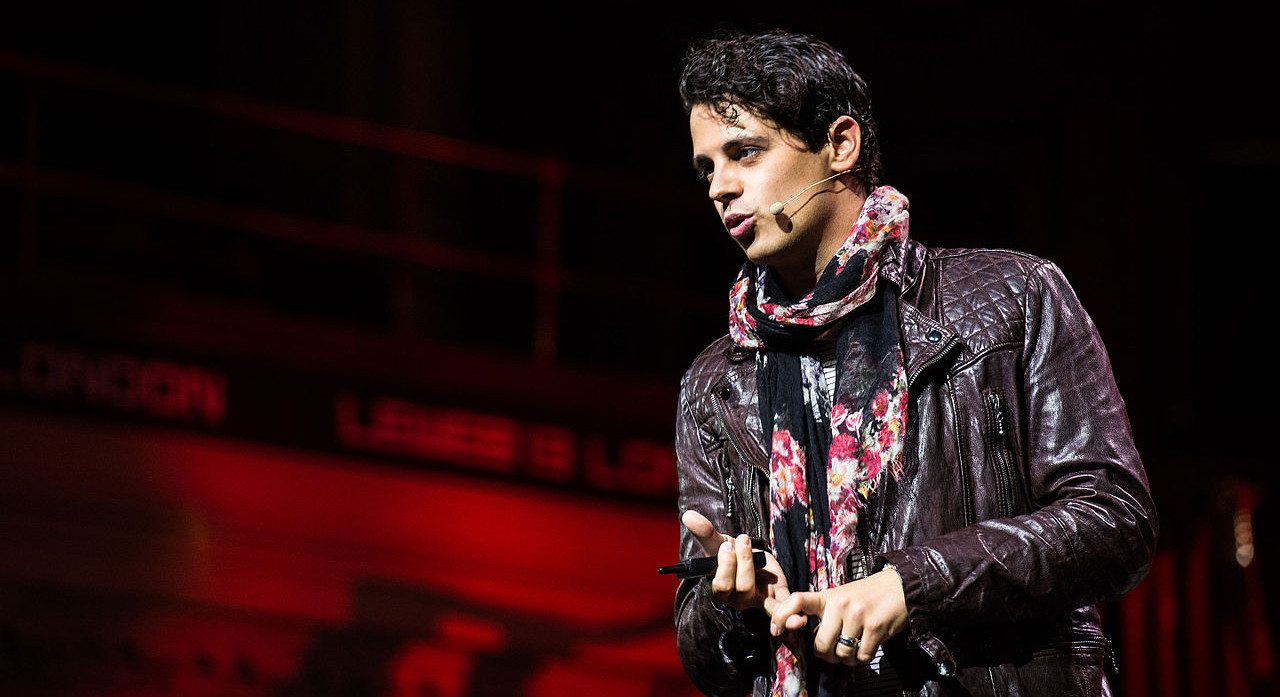Tête-à-tête: Should Milo Yiannopoulos be given a book deal?
Milo Yiannopoulos – who writes for Breitbart News and is often seen as a spokesperson for the ‘alt-right’ – has reportedly landed a $250,000 book deal with Simon & Schuster. There has been criticism of Simon & Schuster for giving Yiannopoulos this high-profile platform and for paying for what some see as hate speech. So, we ask: should Yiannopoulos’ book be published or not?
Reece Goodall argues yes:
Never one to shy away from controversy, Milo Yiannopoulos’ memoir will soon be out, and it has already attracted lots of attention.
Let’s talk about this for what it is – an attack on free speech
There have been calls for boycotts against publisher Simon and Schuster, and remarks that the book should not be allowed to be published. Let’s talk about this for what it is – an attack on free speech.
Everybody has a right to free speech – it’s that simple. You don’t have to agree with what the person says, but actively trying to prevent someone from being able to voice their opinion is just wrong. The moment you start making the right to free speech conditional, you start infringing on the very liberty you’re claiming to support.
The moment you start making the right to free speech conditional, you start infringing on the very liberty you’re claiming to support
Some have said it is hate speech, and should therefore not be published – the question is, who gets to decide that? Judging that is entirely subjective, so how can it be a fair conclusion? It’s hard to miss the irony of people claiming to be anti-fascist demanding that a book be banned.
Banning opinions you don’t like is intellectually dishonest – it shows you lack the ability to put forward your own points cogently and argue their value. And lest we forget, the sole reason people like Yiannopoulos have such a supporter base is because people are fed up of the ludicrous demands for censorship and shutting down any discussion.
Banning opinions you don’t like is intellectually dishonest – it shows you lack the ability to put forward your own points cogently and argue their value
Protest the book all you like, don’t buy it, argue with people who do – that’s all good – but nothing good comes of banning books and ideas.
George Alldred argues no:
The principal argument presented for the publication of controversial figures, such as Milo Yiannopoulos, usually incorporates some advocacy for freedom of speech. However, in many cases, the word ‘freedom’ extends to incorporate much more than simply the right to advocate a point of view.
By gifting publishing rights to those who propagate hate against others, in the name of freedom of speech, we conversely reduce the liberty of the targeted minorities. After years of minorities being burdened by hate speech, we, as a society, have a moral obligation to defend those who are unjustly marginalised.
We, as a society, have a moral obligation to defend those who are unjustly marginalised
A secondary point is that we must recognise that even freedom of speech has its limits. Many people have been blinded by the romantic rhetoric of complete freedom when it comes to sharing personal opinions, but if such opinions actively marginalise others in their society, they rupture the social fabric in which we are all entwined. It divides us, in a world where division seems to be the over-arching narrative.
People protest, but in a form of ‘slacktivism’ that still, in a way, acquiesces to marginalisation of this calibre. Some people do not protest, tending to prioritise a freedom of speech over a freedom to feel safe in one’s own community.
We must not prioritise a freedom of speech over a freedom to feel safe in one’s own community
Therefore we must not allow the publication of these memoirs, not on the basis of some paternalistic doctrine, indirectly pushing what people should or should not be reading and ingesting, but on the basis of actively defending those whose liberties are being encroached.
Where do you stand on this? Let us know at @Boar Books

Comments